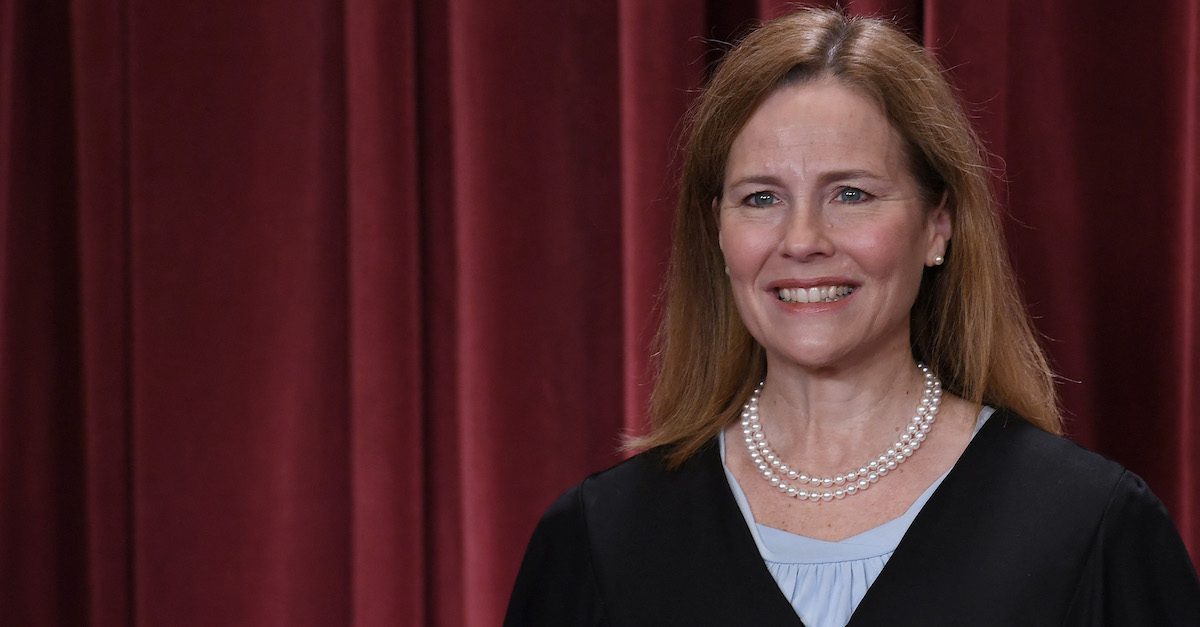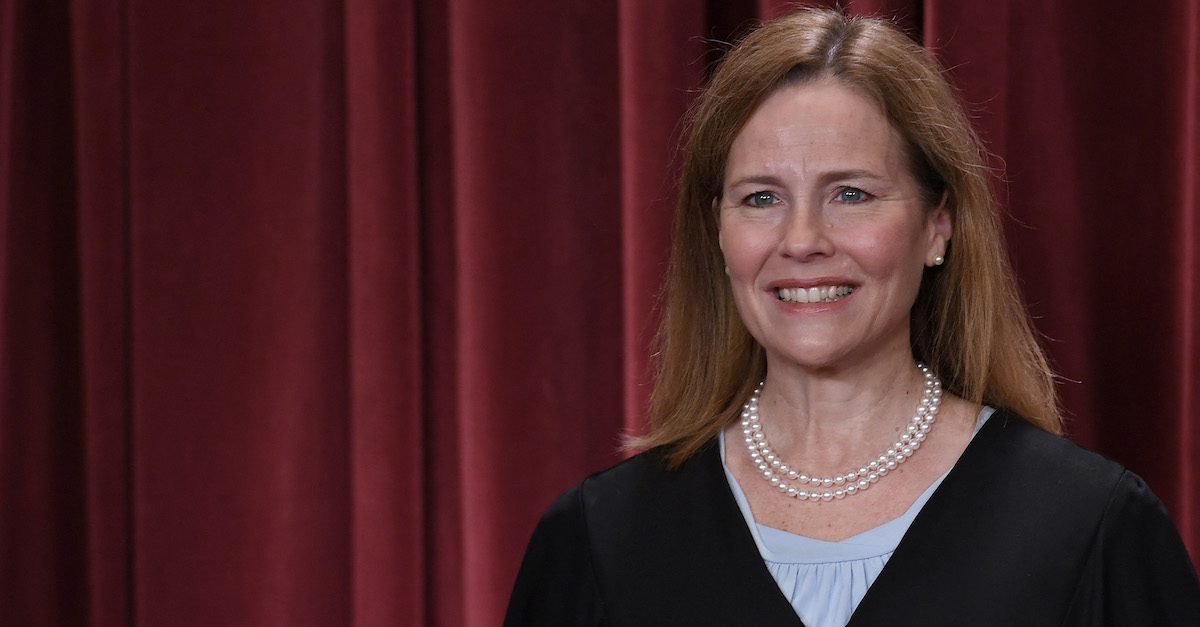

Associate U.S. Supreme Court Justice Amy Coney Barrett is photographed for the official picture at the Supreme Court in Washington, DC on October 7, 2022. (OLIVIER DOULIERY/AFP via Getty Images)
U.S. Supreme Court Justice Amy Coney Barrett seems to have elicited a significant acknowledgment from one of Donald Trump’s lawyers regarding the nature of some of the charges he faces in Washington, D.C., federal court over various efforts to overturn the 2020 election results.
During oral arguments Thursday morning in the case called Trump v. United States, several members of the court took the opportunity to try and differentiate between what might be considered the president’s personal conduct and his official conduct. During the proceedings, Trump’s lawyer D. John Sauer and some of the justices came to agree that there is a difference between such conduct, at least in theory, and that the former would not be entitled to immunity.
Barrett, however, got Sauer to agree with her on a few points that likely had special counsel Jack Smith pleased with the end result.
“You admit that actions done in private don’t have immunity?” the justice asked.
“We do,” Trump’s lawyer replied.
Barrett went on to read from the government’s early April response brief filed with the court, which describes several of Trump’s alleged actions as “private conduct” meant to achieve a “private aim.”
“Petitioner turned to a private attorney who ‘was willing to spread knowingly false claims’ of election fraud to spearhead his challenges to the election results,” the justice read before asking: “Private?”
To which Sauer replied: “As alleged, I mean, we dispute the allegation, but that sounds private.”
With the intonation of a box ticked, Barrett mimicked the response. “Sounds private.”
Then she read from Smith’s brief again: “Petitioner conspired with another private attorney who caused the filing in court of a ‘verification’ signed by petitioner that contained false allegations to support a challenge.”
“Also sounds private,” Sauer admitted.
This time, the justice did not respond, but barreled ahead, reciting the government’s brief yet again, and slightly paraphrasing.
“Three private actors — two attorneys (including those mentioned above) and a political consultant — helped implement a plan to submit fraudulent slates of presidential electors to obstruct the certification proceeding, and petitioner and a co-conspirator attorney directed that effort,” Barrett said.
Sauer, this time, offered slight pushback about how fast the justice read the alleged conduct but ultimately said he believed it was private.
“So those actions you would not dispute?” Barrett drilled ahead. “Those were private and you wouldn’t raise a claim that they were official.”
Again, Sauer agreed: “As characterized.”
The 45th president’s lawyer quickly then moved to rattle off a series of actions he believed would be considered official acts like meeting with the U.S. Department of Justice, communicating with Congress, and communicating with the public.
The conversation was quickly noticed as an important development with a potential outcome that might not be favorable for Trump’s stance.
“Justice Barrett just got Sauer to admit that there are private acts mentioned in the indictment — so that the trial could proceed at least in part,” University of Texas Law Professor Steve Vladeck stated on the social media platform X (formerly Twitter).
Trump’s lawyer then attempted to salvage some of those previous admissions for his client with a reference to procedural considerations.
Asked by Chief Justice John Roberts how the court should interpret an indictment that includes both private and official conduct, the defendant’s lawyer made two suggestions leading in the same direction.
Sauer said the high court should either resolve the issues themselves and return the case to the lower court or simply return it to the lower court to decide how to handle those issues — as long as the court’s order removes all of the official conduct from the indictment.
Maybe pretending to be somewhat incredulous, Roberts described that idea as “like a one-legged stool.”
“If you say you have to remove the official part, how does that proceed?” the chief justice asked.
Trump’s lawyer, after some hesitation, replied: “This particular indictment … we don’t believe it would be able to go forward.”

